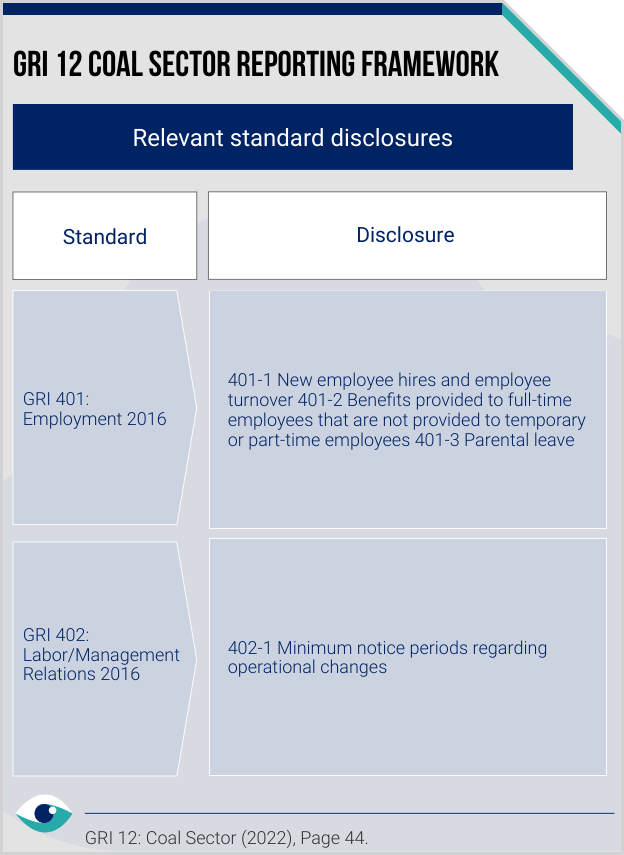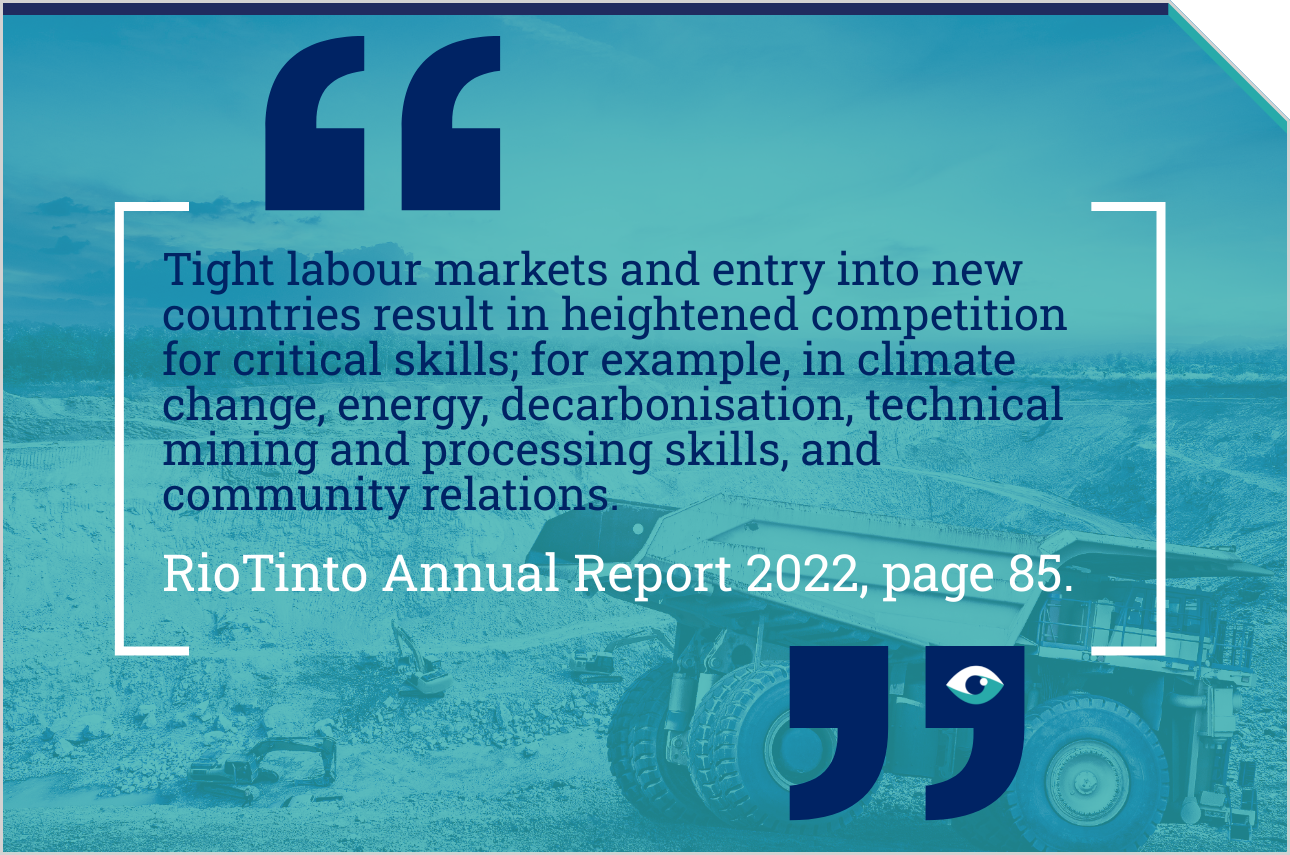Coal's phase-out as per COP28 and ongoing divestment by some major players creates a context in which only the best-managed coal organisations will continue long-term. Collective bargaining and agreements are encouraged to drive just transition measures. Effective relations help organisations navigate a challenging external environment, prevent detrimental impacts on their activities and reputations, and support financial performance. Employee engagement measures, upskilling, safe and inclusive work practices, and the communication of these efforts to stakeholders can mitigate risks and cement reputations.

Relations & recruitment for sustainable transition
Coal mining organisations pursue fair and inclusive labour practices and robust recruitment in line with ESG goals and Just Transition
People: Social & Governance impacts
Hydrocarbons
AT A GLANCE
Coal organisations must enhance their reputations by demonstrating effective labour practices under stakeholder scrutiny.
Labour relations, talent concerns and ESG are critical risk areas for coal organisations.
Key players outline initiatives to mitigate risk in disclosures aligned with GRI and SASB standards.

Improving labour rights
Improving working conditions and pay in the value chain is vital, particularly where rights are unprotected. Conflicts lead to stoppages and lost revenue, impacting profitability. Industrial action at Glencore, Anglo American, and BHP-owned Cerrejón, for example, reduced production by 20% and share prices by 2.4%. Unionisation improves long-term relations and is demonstrated in disclosures. Teck under SASB labour relations disclosure metrics reveals 50% of its workforce is unionised.
Impactful agreements
Collective agreements support workers during transition. International Labour Organization (ILO) guidelines for just transition say agreements can have environmental, H&S or hybrid work provisions. Verena Schmidt (ILO) cites Canada’s inclusion of green clauses, including travel, cutting waste and procurement. The ILO notes that such clauses, analysed in Social Dialogue Report: Collective bargaining for an inclusive, sustainable and resilient recovery, are common in high-income countries.

Relations and recruitment
Better working environments enhance productivity, increase labour utilisation and attract talent. Stakeholders recognise these opportunities. Organisational efforts are exemplified in disclosures to GRI 401, 402 and 404 standards. BHP continues “decent work” and DE&I impact in its supply chain. Rio Tinto reflects the Just Transition Framework, and has developed employee value propositions and local trainee programmes. However, the industry struggles to recruit and faces a reduced pipeline of graduates.
The future for coal
Teck noted labour constraints in disclosures despite improving retention practices by developing union relationships and modelling the same terms of employment for unionised and non-unionised employees. Teck divested its coal business to focus on base metals in an apparent risk avoidance strategy. Effective relations are a tool for organisations yet to divest to ensure a sufficient workforce and maintain coal outputs. Success requires collaboration, transparency and a “same side” ethos.
FURTHER READING
- Summary of global climate action at COP 28 (United Nations Climate Change)
- Energy policy and the labour market (European Economic and Social Committee)
- GRI 12 Coal sector 2022 (GRI)
